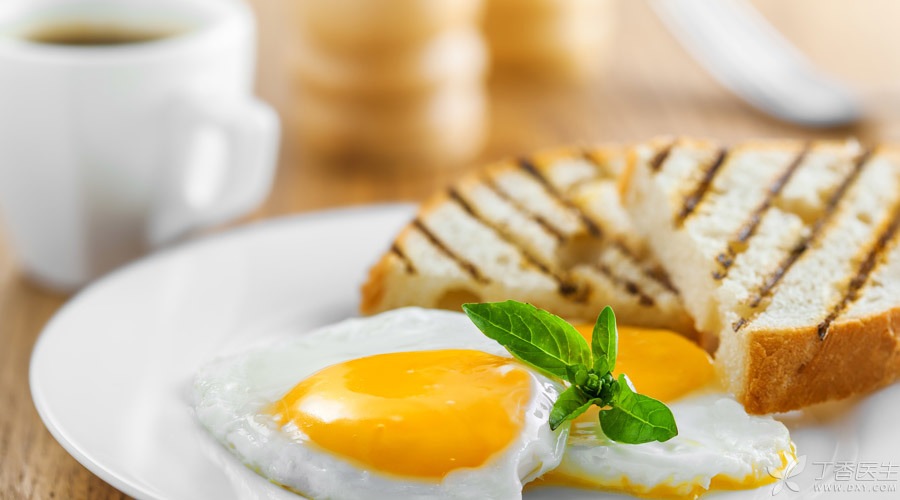
Eggs are a very good kind of food. There are also two major factions about boiled eggs:
Some people like [soft-boiled eggs] whose yolk has not solidified.
Some people like [well-cooked eggs] whose yolk is completely solidified and hardened.
Not only should we choose delicious ones, but also more nutritious and healthy ones. Which is better? Let’s compare them separately.
In terms of nutrition, the difference is not worth tangling with.
Many people think that heating always destroys nutrition, so when eggs are boiled, they [have no nutrition]. This is a misconception. The main nutrition provided by eggs is protein, in addition to rich minerals and some vitamins.
1. Protein
Heating will not destroy protein, but will help digest and absorb protein.
The process of protein digestion is the process in which protease in gastrointestinal tract cuts protein macromolecules into small fragments until they become amino acids.
- On the one hand, there are protease inhibitors in eggs, which will reduce the protease activity in digestive juice and affect digestion. After sufficient heating, the protease inhibitor is destroyed and the protein is easier to digest. On the other hand, the protein is denatured by heating, and the molecular structure is more stretched, which is also conducive to the protease to play its role.
2. Minerals
Minerals in eggs will not be affected by heating, so neither [loose-boiled] nor [fully cooked] will affect the absorption of minerals.
3. Vitamins
Vitamins are sensitive to temperature and do lose some of them during heating. However, comparing the vitamin content of raw eggs with that of well-cooked eggs shows that the loss is not large.
In short, [full ripening] is good for protein digestion and [loose heart] is good for vitamins, but the difference between the two is not big and is not worth tangling with.
In terms of safety, well-cooked eggs are preferred.
Eggs are a kind of food that is vulnerable to bacterial contamination. Bacterial contamination comes from two ways: bacteria in hens will be transferred to eggs; Egg shells have good permeability, and bacteria encountered during storage are also easy to pass through eggshells and pollute eggs.
Although not all eggs are contaminated by pathogenic bacteria, this possibility always exists. The most common pathogenic bacteria in eggs is Salmonella, which is colorless and tasteless after contaminated eggs and cannot be distinguished without professional testing.
In October 2010, there was an outbreak of salmonella contamination of eggs in the United States, with a total of 500 million eggs recalled.
This problem still exists in industrialized farming that will take various sanitary measures. The risk of bacterial infection is only high or not low for [organic eggs] that do not use antibiotics and [native eggs] [grass eggs] [stupid eggs] that do not have sanitary monitoring.
Salmonella and other pathogenic bacteria that may appear in eggs are very afraid of heat. The U.S. Department of Agriculture recommends that, The egg product is heated to above 71 DEG C, It can fully kill pathogenic bacteria. The coagulation temperature of protein is about 62 ℃, Egg yolk starts to solidify at 68 ℃. The egg white solidified and the egg yolk did not solidify, indicating that the temperature of killing salmonella has not been reached. If you happen to meet with contaminated eggs, you can only ask for more blessings. And fully cooked egg yolk completely solidified, indicating that the egg center has also reached the temperature of killing bacteria, and safety is guaranteed.

In terms of flavor, you have the final say.
Some people like to argue [which is better to eat], just like the salty and sweet dispute of bean curd-it can be very lively, but it is meaningless.
Whether it tastes good or not, your feeling is valuable. Even if [which is more popular] [which is more popular], it is only valuable to those who sell boiled eggs in restaurants. For those who eat eggs, even if people all over the world think it is delicious, it will not affect what you feel delicious in any way.
Dietitian teaches you how to boil eggs
If you like well-cooked eggs, there is naturally no problem. If you like soft-boiled eggs, you need to weigh between delicious and safe.
It should be noted that, [There is a certain risk] does not mean [unsafe] [not edible]. Many foods, Such as steak, seafood, sashimi and so on, They are all examples of risks but can be eaten carefully. If the production of eggs is well managed, The eggs themselves are free from bacterial infection, So soft-boiled eggs are still safe. Fully heated and boiled is another line of defense for food safety. Relatively speaking, eggs purchased from large supermarket chains and cultured on a large scale in industrialization are less likely to have bacterial infection. However, the uncertainty of [local eggs] [stupid eggs] [grass eggs] sought after by many people is much greater.
In fact, between [soft-boiled eggs] and [well-boiled eggs], There are also many intermediate conditions. We can also control the temperature to make the yolk just solidify without overheating. One way to achieve this temperature is to put cold water into the egg, fire until the water boils, hold the lid for 10 minutes, take out the egg and put it in cold water to cool down, and you can get the boiled egg [cooked but not old].
